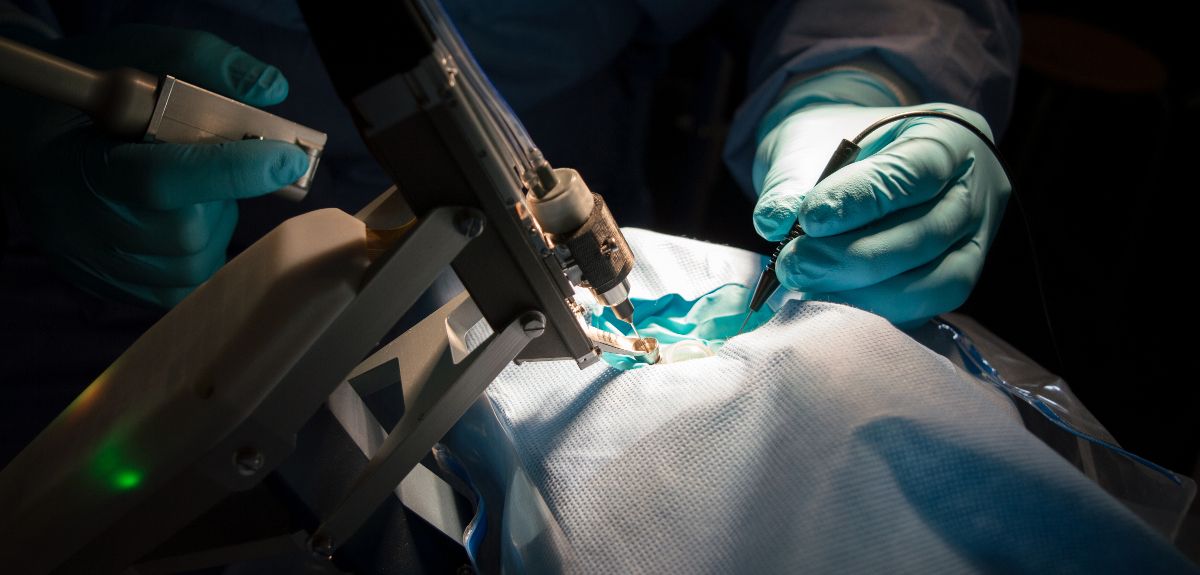
Image credit: Preceyes BV
Partnership to test robotic surgical system
Oxford University has signed an agreement with Dutch medical robotics firm Preceyes to test a robotic surgical system. A team led by eye surgeon and researcher Professor Robert MacLaren will run human clinical trials using the PRECEYES Surgical System. The study will assess the clinical functionality and applicability of the device, focusing on high-precision vitreoretinal surgery - operations which take place at the back of the eye. The aim is for the trial results to facilitate future targeted drug delivery.
Separately, Preceyes have signed a deal with Oxford University spin-out company Nightstar, to collaborate in the development of a high-precision drug delivery technology in the eye. Nightstar will use the Preceyes robotic device to further refine the delivery of gene therapy to the subretinal space - the area behind the retina in the eye.
Preceyes' high-precision robotic system targets ocular surgery, with vitreoretinal surgical procedures as the initial target market. The technology promises to improve the delivery of existing ocular surgery as well as enables the development of new treatments such as high-precision drug delivery, assisting eye surgeons in performing the most demanding surgical tasks.
David Fellows, Chief Executive of Nightstar said: 'Gene therapy has huge potential in retinal diseases and continuing to improve the precision and ease of delivery of the therapy are critical elements to success.'
Robert MacLaren, Professor of Ophthalmology at the University of Oxford commented: '“Over the last century, devices that enhance surgical precision have given us the greatest breakthroughs in ophthalmology. We are delighted to have approval for a clinical trial in Oxford which will be the first to assess use of a robotic device for surgery inside the eye.'
Gerrit Naus, Chief Executive of Preceyes said: 'The collaborations with Nightstar and the University of Oxford are a major recognition of the unique value of our technology and its applicability to new treatments for unmet needs. We are very pleased to work closely with Nightstar and the University of Oxford to further mature the gene-therapy delivery and look forward to market adoption.'
 Statins do not cause the majority of side effects listed in package leaflets
Statins do not cause the majority of side effects listed in package leaflets